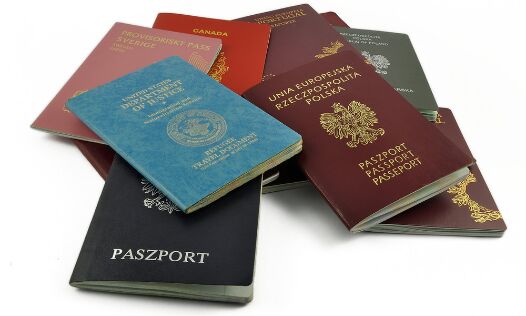Payment is being processed. Please do not refresh or close this page until your payment is complete.
 Book an Appointment
Book an Appointment

French legislators have given their final nod to a contentious immigration bill, marking a significant policy shift that tightens regulations for foreign students and workers seeking entry into the country.
The legislation, which resulted from a compromise between French President Emmanuel Macron’s party and the conservative opposition, reflects a broader trend in Europe— a rightward turn responding to the increasing influence of far-right politics. The approved bill introduces more stringent rules for immigrants, altering eligibility criteria for state subsidies such as housing aid and family allowances.
Under the newly endorsed law, immigrants will now be eligible for state support only after residing in France for an extended period, ranging from several months to years. Additionally, the legislation introduces obstacles for immigrants seeking to reunite with their families in the country and enforces new visa fees for foreign students.
Interior Minister Gerald Darmanin, expressing the necessity for stringent measures, stated after the lower house vote, “It’s not by holding your nose in central Paris that you can fix the problems of the French in the rest of the country.”
Initially designed as a balanced approach to streamline residency permits for migrants in labor-deficient sectors and facilitate the expulsion of illegal migrants, the bill underwent alterations to secure right-wing support. Consequently, measures related to residency permits were diluted, and access to welfare benefits, including those for children and housing allowances, was postponed by several years.
Under the new law, immigrants will now qualify for state support only after residing in France for an extended period, ranging from several months to years. Additionally, the legislation imposes hurdles for immigrants seeking to bring their family members to the country and enforces new visa fees for foreign students.
The compromise also introduces migration quotas, imposes stricter conditions for immigrants’ children to acquire French citizenship, and specifies that dual nationals convicted of serious crimes against the police could face the revocation of French citizenship.
This legislative development highlights the intricate challenges faced by Macron’s government in attempting to address concerns from both ends of the political spectrum. While achieving success on the immigration front, the concessions made underscore the difficulties of navigating the diverse political landscape in contemporary Franc
Immigrants will now be entitled for public assistance only after remaining in France for a lengthy amount of time, ranging from several months to years, under the newly approved law. Furthermore, the Act creates barriers for immigrants wanting to reconnect with their relatives in the country and imposes extra visa costs for international students.
The settlement also includes migration quotas, stiffer requirements for immigrants’ children to get French citizenship, and says that dual nationals guilty of major offenses against police may have their French citizenship revoked.
This legislative development underscores Macron’s government’s nuanced hurdles in seeking to accommodate concerns from both sides of the political spectrum. While gaining victory on the immigration front, the concessions made highlight the difficulty of negotiating contemporary France’s complex political terrain.